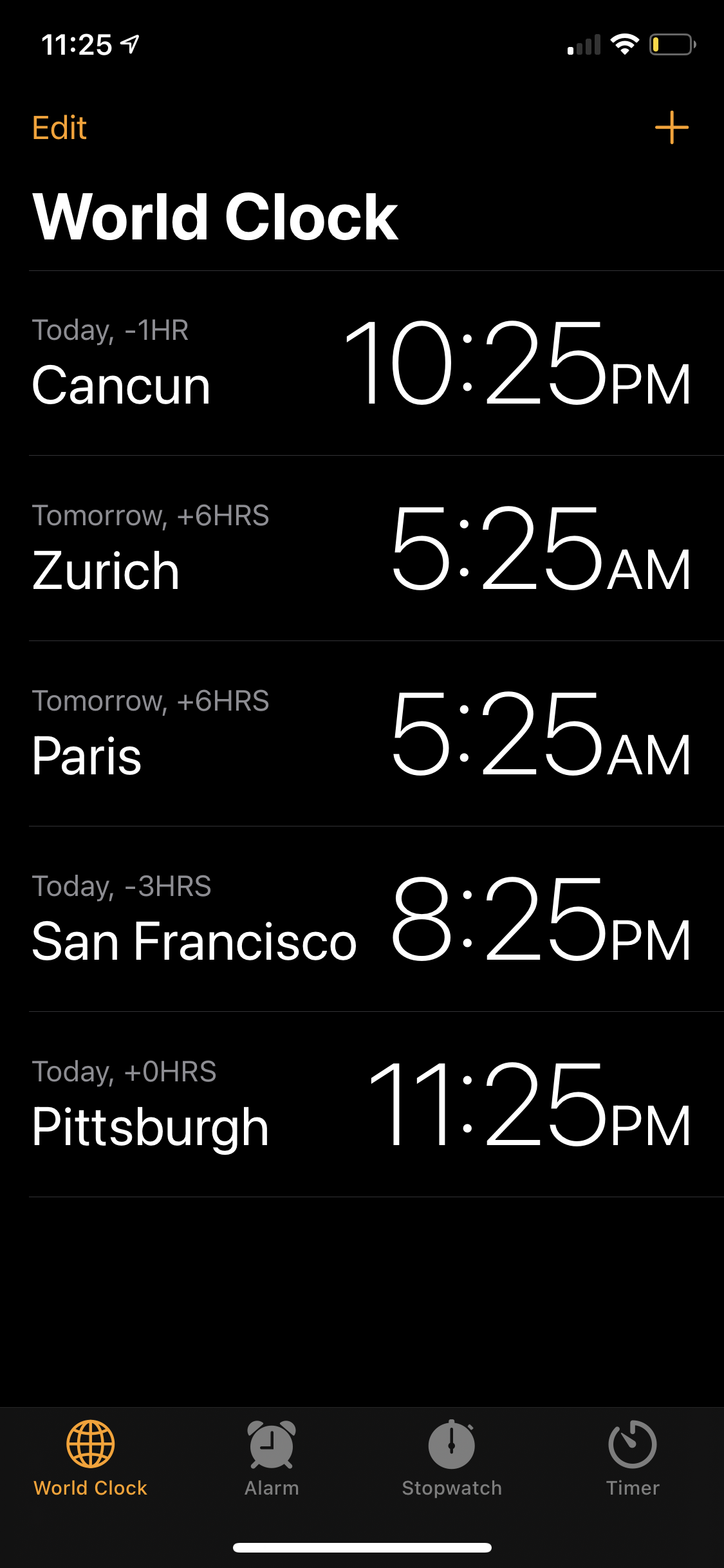Before going away on a trip there are always things that need taken care of- some obvious like planning your transportation and packing and others that are easier to forget. In this post, we are talking about how if there’s a lot to do before going on a weekend trip to visit grandma, there’s really a lot to do before international travel. I’ve compiled a list of the most commonly forgotten, critical, and really nice-to-have things to reference so you can feed your wanderlust without having those oopsie moments while abroad.
1. Notify Your Banks
Banks do this fancy little thing called suspicious activity monitoring, where essentially they find patterns in your lifestyle and spending patterns so they can identify anything fishy, and if they do, they can lock your card. This feature can be a God send when you’re sitting on your couch checking your bank statement and see that someone that was not you is now the owner of a brand new Louis Vuitton bag with your hard earned cash. However, consequently, it can be horrible if your bank is used to you being in North Carolina buying tacos and then shuts you down mid-purchase of a delectable croissant on your dream Paris vacation.
Do yourself a hugeee favor, and notify any bank you may possibly use while abroad where you are going and the dates that you are going so it knows that croissant purchase is innocent and lets you snap an Insta photo before strolling to your date with the Eiffel Tower.
2. Determine If You Want an International Cell Plan
You really have two options when going out of the country. Survive on public wifi networks or purchase an international plan. International plans can be expensive, but if you need access to apps that require data for say directions or are traveling alone where you won’t be around much WiFi (say on a hike), it might be worth the purchase. But again, better to do this while in your native country than when you are lost but can’t order an Uber or get directions.
3. Pay All Bills
The last thing you want to be doing when you’re shopping in Milan with your friends is stressing because you forgot to pay a bill. The easiest method is to put everything on auto pay, but the truth is, you can’t really do that with everything. Run through those pesky subscription services and all credit card, house, and vehicle bills and make sure everything that will be due when you’re gone is accounted for because who wants to come home to find out that their electric has been turned off? This also helps if you’re rolling on a budget to let you know how much money you really have to spend.
4. Communicate Your Frequency of Availability to Those You Talk to Regularly
Make sure you set expectations with anyone you typically talk to frequently. Yes, you may not realize that you would normally be talking to your mom at this time when you’re busy drinking beer in an Irish Pub, but she is likely in her normal everyday routine and will notice the absence. Whether these people are your parents, besties, grandparents, or significant others, make sure to communicate the time zone and how often you will be able to talk that way they are not left worried and wondering.
One helpful tip, especially if those you are leaving at home are not travelers, is to set the World Clock for where you are going so they have a quick reference for what time it is where you are. This may seem silly, but for anyone who has ever dealt with time zones, you know how tricky they can be. On iPhones, this is in the Clock app on the far left.

5. Scan Your Passport
It’s not always safe or a good idea to keep your passport on you at all times. In my school study abroad classes, we were always taught to scan the photo part of your passport so that if you needed to leave the country in an emergency you could. I’m not 100% sure this would work, but I would say that it’s not a bad idea to do as a precaution.
6. Pull Out Cash
There are many, many reasons why this is a good idea and even speaking as someone who doesn’t carry cash, I can confidently say that if you are going out of the country you need to take cash. Not only is it good for little vendors and emergencies, but a lot of places simply don’t except anything but. Imagine you need to take a ferry to get somewhere and you only can if you have cash. Luckily they had it, but this just happened to my friends on their honeymoon so take this one example and use it as motivation to make a quick stop at the ATM before you step on that plane.
It’s also important to always have more than one method of payment. For example, I like using my Discover card when possible out of the country because there are no foreign transaction fees; however, it’s not accepted everywhere so I always make sure to travel with a Visa and cash too.
7. Get an outlet converter, if needed
Not all outlets look like the ones in your native country, nor have the same voltage. For the first, do a quick Google search and find out if you need an outlet converter. If you do, these are pretty cheap and can easily be found on the internet. I needed one when I traveled to Japan and Taiwan and wouldn’t have been able to charge my phone without it.
As for voltage, check this before you go too so you’re not that person that makes all the power go out when you try to plug in your blowdryer.
8. Consider How You’re Holding Your Items
Generally speaking, it’s best to get a bag that you can keep close to your body to avoid pickpocketing. On my study abroad trip to Paris, we were literally going up the escalator that takes you from the subway to the city and a girl on our trip had her phone stolen before we even reached the top. Crossbody bags are great and hey, I never thought I’d live to see the day but Fanny Packs are back in, ladies, and can be worn fashionably across the front of your body or around your waist.
9. Hold Your Mail
Do yourself a favor and go onto the USPS website and stop your mail. This will literally just stop your mail from being delivered and it will all be held safely at the Post Office while you’re gone. This way, you don’t have to worry about any checks sitting in there or anything you ordered (make-up, electronics, vitamins, etc.) going bad. You can even select your return date at which time all of your compounded mail will be delivered straight to your mailbox. It’s a Godsend.
10. Put Important Info in Your Notes App
Please, please, please be smart and write the hotel address and any other important contact information/addresses/phone numbers in your notes app or somewhere that you don’t need WiFi to access. My husband and I landed in Mexico and needed our resort address to get through immigration. Luckily, the line was forever long and we found it in an email offline, but it gave us a good scare. You should ALWAYS know the address of where you are staying so you can get back.
11. Make Any Outstanding Returns
Most returns can only be made 30 days post-purchase, so if you have any outstanding, make them before you leave.
12. Figure Out What You Need COVID-restriction Wise
There’s a lot nowadays and this changes rapidly and is different place-to-place. When my husband and I went to Mexico, we needed multiple forms and a COVID test no more than three days before returning. It was honestly a lot to keep track of and you could easily mess yourself up if you don’t do the proper research and due diligence to make sure you have the hang of what needs done.
13. Learn Basic Conversation Skills In the Native Language
Even if you can’t say much people LOVE when you try and in some countries it’s considered rude if you don’t. I took Spanish in high school and I can’t tell you how many times I heard “You know Spanish”?! while in Cancún. It literally makes some people’s day, really helps you understand the culture, and is honestly just really fun.
When I went to Taiwan, my friend Kaitlin and I got lost and went to a Police station to ask for directions. We spoke entirely in English but at the end I said Xièxiè, which is thank you in Mandarin, (and probably wrong, may I mind you) and the officer got all excited, got the biggest smile on his face, and waved to us as we left. I will never forget that moment.
I hope you learned something new and that this list will help you be more prepared the next time you travel oversees. I love hearing from you, so please share any tips you have in the comments below!


